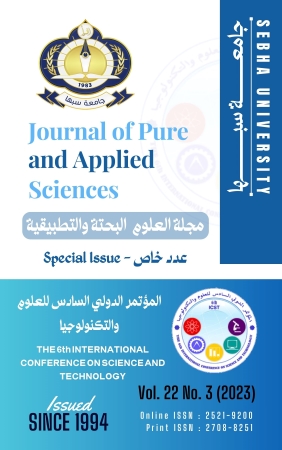Evaluating the curricula of the architecture departments to develop them in accordance with the concepts of sustainability "Higher education institutions in Libya as a model
Abstract
This study deals with the extent of the architectural student's awareness of the concept of sustainability and whether he is familiar with all that is related to sustainability or only part of it. And has been disscussed the issue sustainability. has the issue of sustainability and everything related to it studied theoretically and in practical projects, or was it satisfied with the theoretical study only? And if it is not studied practically, does the professor have a role in this? To achieve the aim of this study, the researchers conducted a questionnaire as a means of collecting data, as the study population consisted of students from the Department of Architecture studying and recent graduates of some Libyan public and private universities. and technical colleges as a random study sample. The questionnaire was distributed electronically to the sample, and (131) questionnaires were collected. After analyzing the data, the study came to know the concept of sustainability. However, it should be emphasized that most of the sample, when applied in practical projects, and with regard to faculty members, should increase the focus and encourage students to apply sustainable design in practical projects during the semester and graduation, which would improve the educational level and keep us the development. In addition to the importance of identifying environmental engineering programs and training students on it.
Full text article
Authors
Copyright (c) 2023 Journal of Pure & Applied Sciences

This work is licensed under a Creative Commons Attribution 4.0 International License.
In a brief statement, the rights relate to the publication and distribution of research published in the journal of the University of Sebha where authors who have published their articles in the journal of the university of Sebha should how they can use or distribute their articles. They reserve all their rights to the published works, such as (but not limited to) the following rights:
- Copyright and other property rights related to the article, such as patent rights.
- Research published in the journal of the University of Sebha and used in its future works, including lectures and books, the right to reproduce articles for their own purposes, and the right to self-archive their articles.
- The right to enter a separate article, or for a non-exclusive distribution of their article with an acknowledgment of its initial publication in the journal of Sebha University.
Privacy Statement The names and e-mail addresses entered on the Sabha University Journal site will be used for the aforementioned purposes only and for which they were used.

